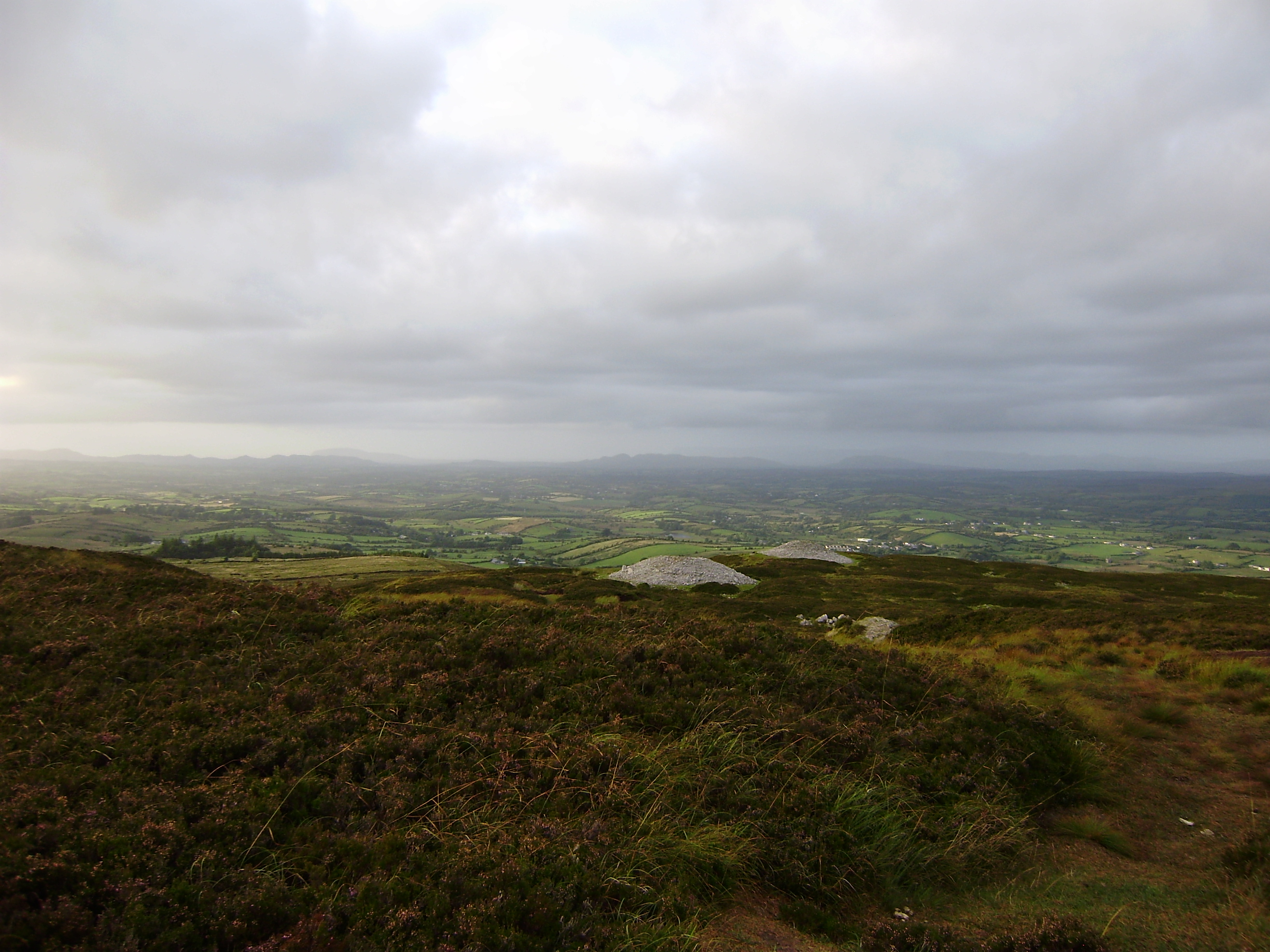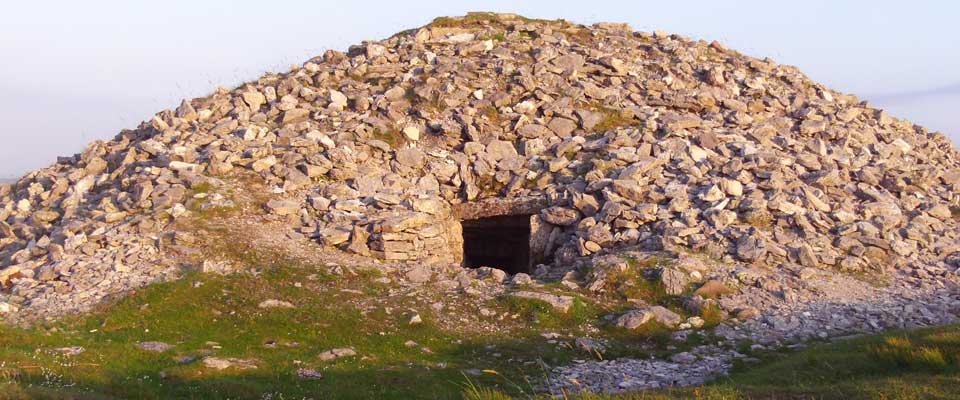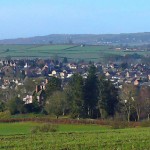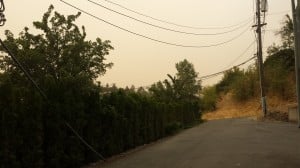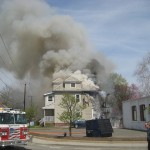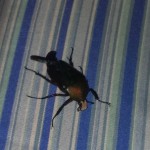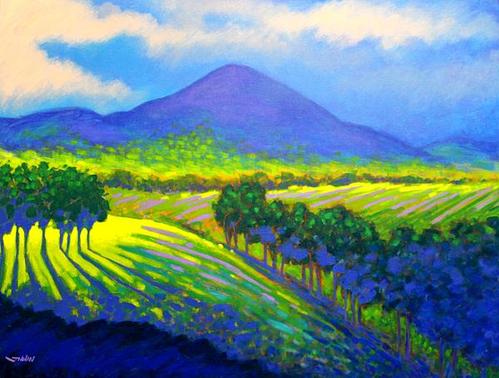
One time they [the king of Ireland’s three sons: Ruide, Fiacha, and Eochaid] went to talk with their father at the Grave of the Druids [fert na ndruadh] to the northwest of Tara. Where have you come from? he asked them. From Echlais Banguba in the south, they replied, from the home of our nurse and guardian. They were dressed in beautiful cloaks: a green cloak on the eldest, Ruide; a fringed woolen cloak from the Land of Promise on Fiacha; and a blue one on Eochaid, who had a band of shining silver fastened across his chest with a golden pin.
Young men, asked the king of Ireland, why have you come? To ask you for land and territory, they replied. The king was silent for a while before he answered: No father gave me land and territory, but my own ability and determination. I will not give you land. You must earn it yourselves.
They rose up as one and went to the green of Bruig na Bóinne where they sat with nobody near them.
What is your advice this night? asked Ruide.
Our advice, said his brothers, is that we fast against the Tuatha Dé Danann to be granted a kingdom, estates, land and great wealth from them.
They were not long there before they saw a … young man coming towards them.
….
What is your name? they asked.
Bodb Derb, son of the Dagda.
It was made known to the Tuatha Dé Danann that you would come here tonight to fast for lands and great wealth.
….
They stayed in that fairy mound for three days and three nights.
(Agallamh na senórach ‘The colloquy of the ancients’)
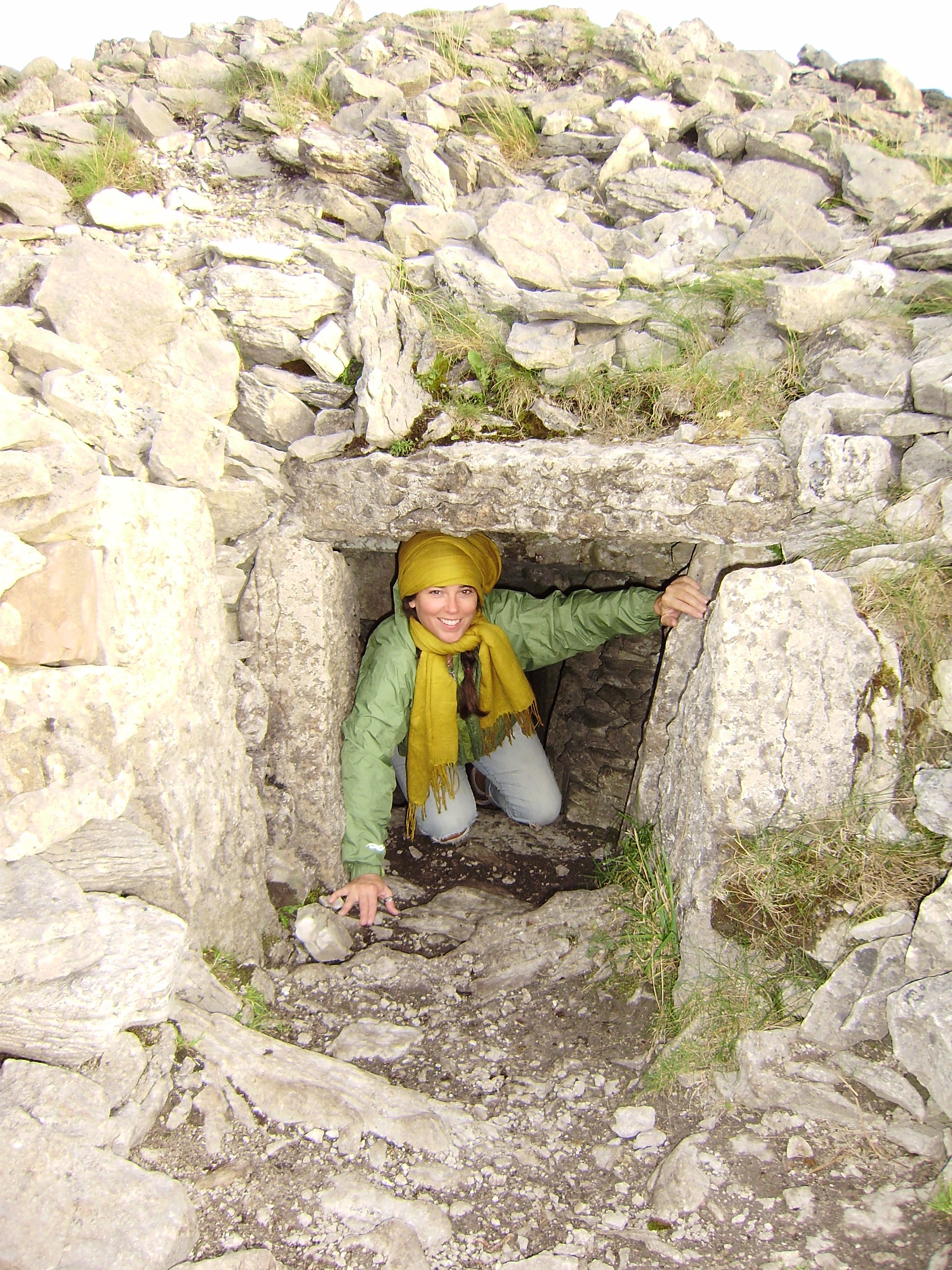 Four nights ago I slept inside the mound. My head, resting hard, on stone which once cradled cremated remains of the Mighty Dead. My back to the West, and the stone of Crom–fashioned in the likeness of the reek, Crom’s holy mountain, now a pilgrimage site to Patrick, the “driven, tormented British eccentric”–I arranged myself inside the recess, fetal like, and there I spent a long, dark night.
Four nights ago I slept inside the mound. My head, resting hard, on stone which once cradled cremated remains of the Mighty Dead. My back to the West, and the stone of Crom–fashioned in the likeness of the reek, Crom’s holy mountain, now a pilgrimage site to Patrick, the “driven, tormented British eccentric”–I arranged myself inside the recess, fetal like, and there I spent a long, dark night.
The weather on the west coast had turned cool and cloudy. The long forgotten valley, which leads to the cairns, is like another world; the narrow quarter of the speckled mountains. The path winds up through boggy ground, and as you leave the houses and road behind the necropolis appears suddenly before you. Cairns claim place of honor atop every ridge and peak. I was overcome by a feeling of watchfulness, and immediacy, as the cairns come into view quickly, without warning.
As I began my ascent up the bumpy mountain, the cairns slid from view. My attention was then drawn back down the valley, to the north and the horizon. A vast expanse of small undulations spread below me, like a green ocean, and in the distance danced rock islands of strange proportion. Benbulbin loomed furthest, with its flat top and long, sharp-toothed sides. The Ox Mountains, with their strange shapes (reminiscent of the raised hairs on a wild boar’s back), hurried between me and the jaw-shaped Benbulbin. The scene brought to mind the story of Diarmuid’s tragic end. It was on Benbulbin that Fionn, jealous of Grainne’s love of Diarmuid, tricked him into hunting boar, though he was under geas not to. Diarmuid was gored, and though water could have saved him–and Lough Gill stretches long nearby–Fionn refused. This story is written in the landscape, and I watched as dark clouds, full of Grainne’s tears, rolled in from the Atlantic.
In the night I heard the rumble of thunder, deep in the rocks; I heard high pitched cries, insistent with their repetition; and the whistle, and moan, of wind dancing across the peaks. The repeated cries, only inches from me in the dark, woke me. Quickly my light went on. On the back of the recess clung three red moths, in front of me on the lintel were another two, but the cries continued. I shone my light into the chamber, expecting anything, but only space and shadow greeted me. Off went the light, as I sat, until I felt from deep in the earth an expectancy.
To understand the placing of offerings in storage pits, it is perhaps helpful to think of corn storage itself as, in a sense, a ritual or religious act, whereby the grain was given into the safe-keeping of the chthonic or underground gods. […] The animals which rotted in the ground, their blood and vital juices seeping into the earth, nourished the earth-gods in whose territory the pits were dug. – Animals in Celtic Life and Myth, Miranda Green.
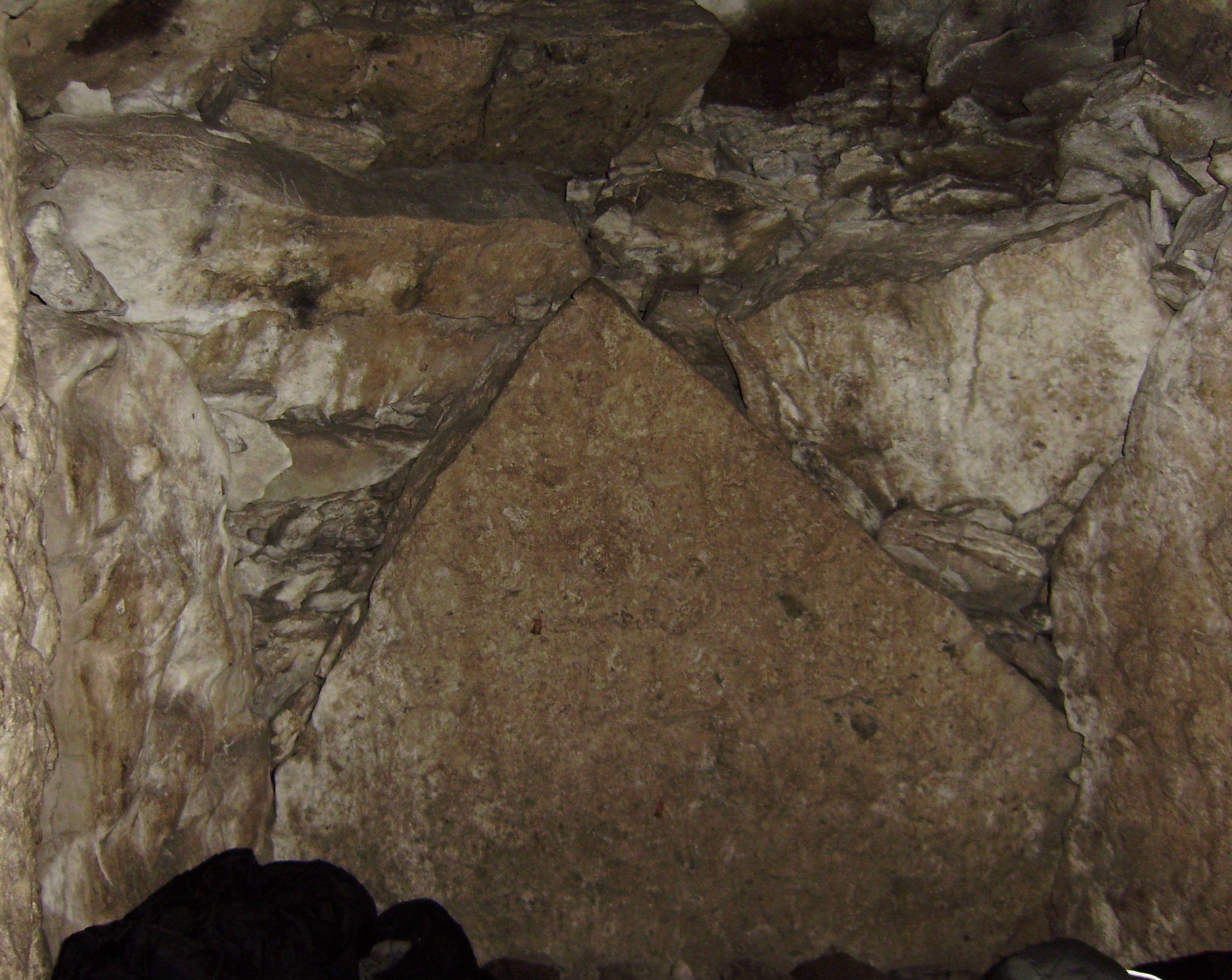 I shifted myself then to the antechamber, a liminal space between the narrow birth-canal passage and the expansive inner chamber. As I sat there in the returning dark, my eyes slowly adjusting to the faint glow of night sky barely visible at the end of the passage, a blur of motion soared above my head: another and another, wings quick on the chill air. Bats were leaving the cairn for the hunt, darting around and above me, yet so close I could feel the subtle wind currents set in motion by their wings.
I shifted myself then to the antechamber, a liminal space between the narrow birth-canal passage and the expansive inner chamber. As I sat there in the returning dark, my eyes slowly adjusting to the faint glow of night sky barely visible at the end of the passage, a blur of motion soared above my head: another and another, wings quick on the chill air. Bats were leaving the cairn for the hunt, darting around and above me, yet so close I could feel the subtle wind currents set in motion by their wings.
There is a saying that if you sleep on a mound you will either die, go mad, be replaced with a changeling, or become a poet. But in the tale of the King of Ireland’s sons, they went to the dwelling of their ancestors to demand a boon. That night, under a waning crescent moon of Lughnasadh, I sought the Ancients–who were long venerated here–to make a pledge ….. and to seek a blessing.
WARNING: If you visit an Irish megalithic structure, do NOT burn candles near the rock; do NOT climb on the mound (internal collapse can happen–these are 5000 year old temples!); do NOT remove stones (in fact, the tradition is to bring a stone to add to the cairn); do NOT etch your name into the rock; and remove ALL rubbish you find or brought. They are watching you!

